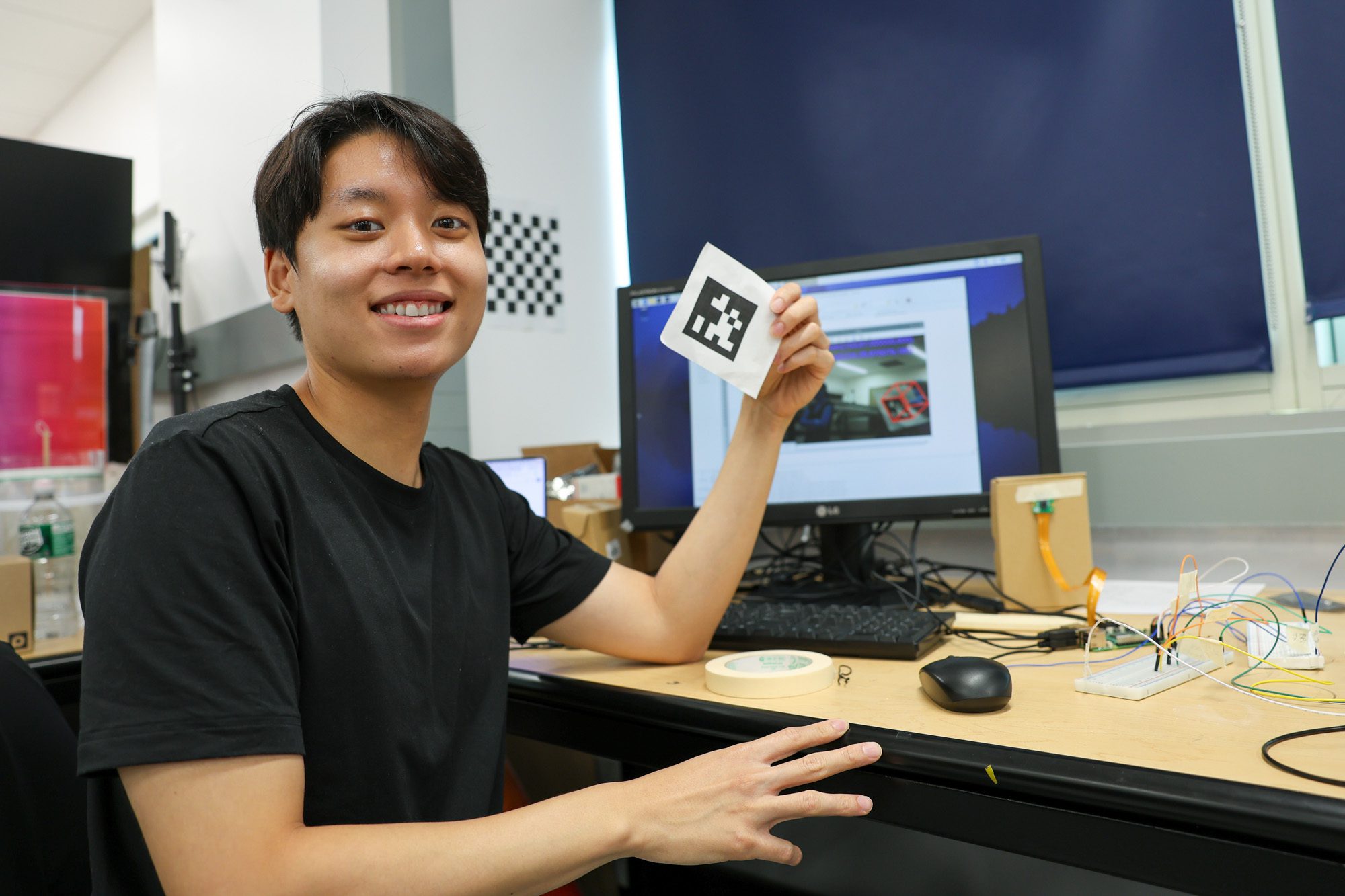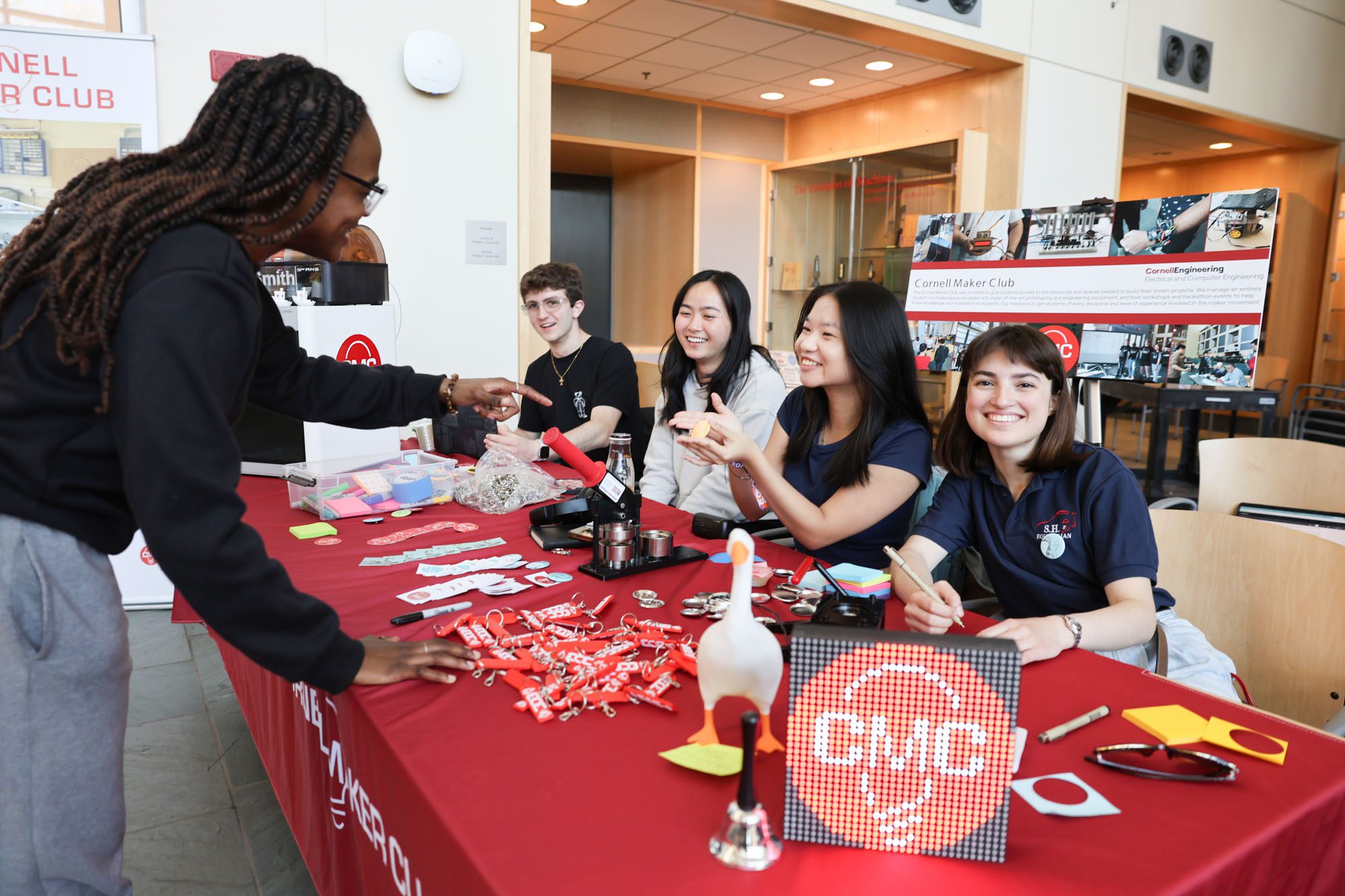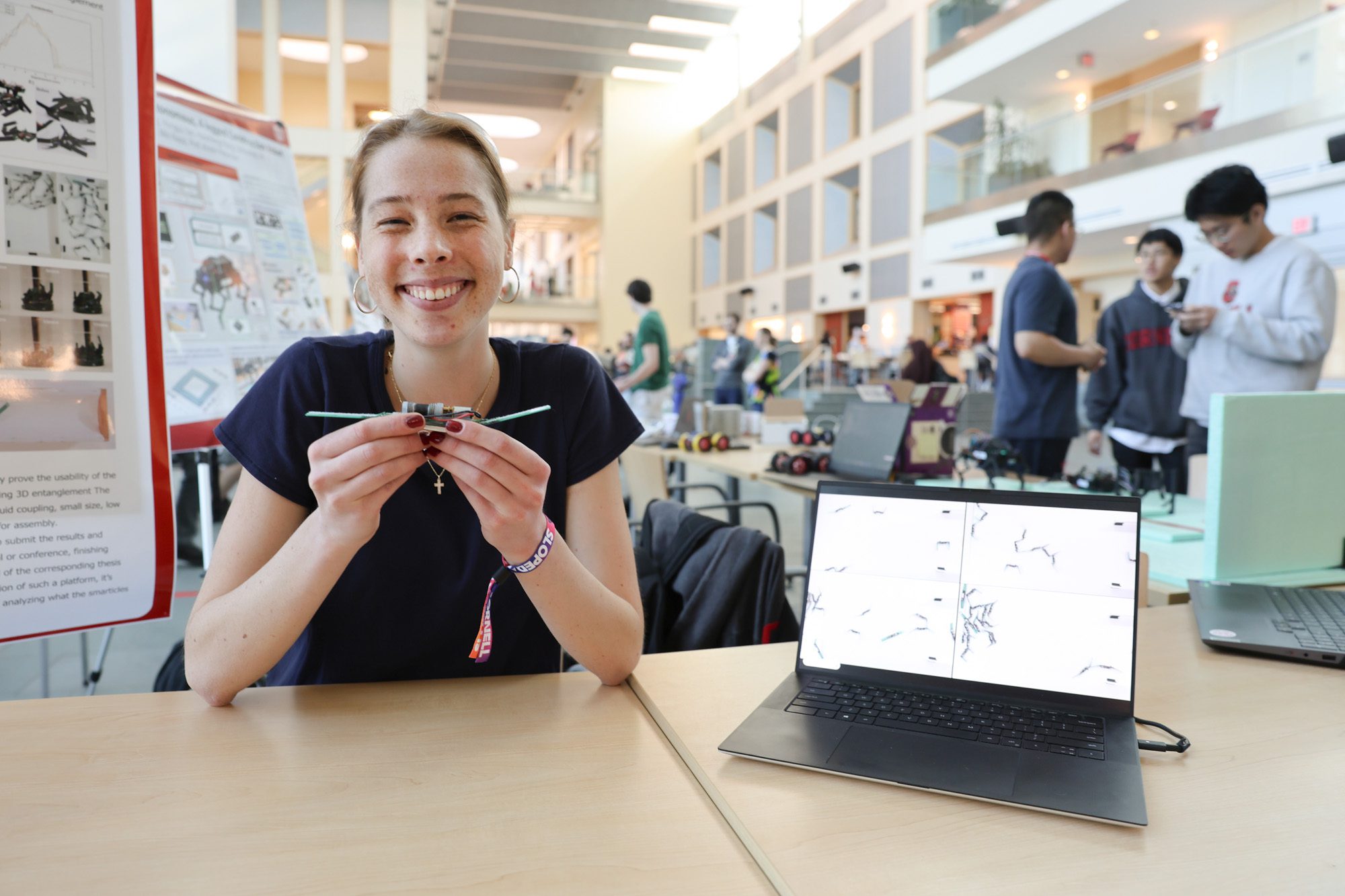


-
Abdelfattah Research Group
Abdelfattah Research Group is investigating how best to build the next generation of machine-learning-centric computer systems. We study methods to co-design and co-optimize neural networks and the hardware on which they run, with a special interest in reconfigurable computing using devices like FPGAs. Our goal is to enable efficient deep learning in both mobile devices and datacenters.
-
High Frequency Power Electronics Group
The High Frequency Power Electronics Research Group develops electronic energy conversion technologies that are ultra efficient, extremely compact, more reliable, highly intelligent, less expensive, and enable the development of next-generation energy systems incorporating power electronic controls.
-
Alian Research Group
The vision of Alian Research Group is to seamlessly integrate processor, memory, and network architecture through a co-design with operating systems, network software stack, and software libraries to minimize the data movement in future datacenters.
-
Apsel Lab
The Apsel Lab group is a research group led by Professor Alyssa Apsel with interests broadly within the field of high performance analog and mixed signal integrated circuits and systems. Since our inception, our research has been guided by a unifying core objective: the scaling of integrated circuit technology.
-
Quantum-Field & Integrated-Optics
Researchers in the Quantum-Field & Integrated-Optics group explore light-matter interactions with applications to sensing and light generation. We also study and seek to bridge the gap between Planck-scale phenomena. These studies are both theoretical and in-lab demonstration and applications.
-
Versatile Electronic Systems Lab (VESL)
Our research aims to create broadly-tunable devices that can be configured within a system, on demand. In this way, the versatile device provides a system with a desired temporary functionality, then readjusts to provide a different functionality for a given time later, and so on.
-
The Cornell – University of Bologna Institute for Vehicle Intelligence
The Cornell-University of Bologna Institute for Vehicle Intelligence “Vĕho” founded by the University of Bologna and Cornell is a shared initiative supporting education and research collaborations between Cornell University/Cornell Tech and selected Italian stakeholders. Vĕho funding will support research initiatives and exchange programs for faculty, students, and industry leaders in the areas of automotive engineering, artificial intelligence, and science of autonomy, to advance their role in future societal impacts and civil infrastructures.
-
The Laboratory for Intelligent Systems and Controls (LISC)
The Laboratory for Intelligent Systems and Controls (LISC) at Cornell University develops new theory and methods on learning, control, and computational intelligence for autonomous systems. Optimal control and approximate dynamic programming are some of the approaches used to develop adaptive and information-driven planning and control methods for flight and motion control, and for the control of multi-agent systems.
-
Integrated Quantum-Classical Micro-Systems (IQCs) Lab
Our research aims to build the next generation of integrated systems for emerging applications, including on-chip quantum information processors, ultra-miniaturized smart IoT wireless nodes, advanced metrology systems, and real-time biomedical monitoring devices.
-
Jena-Xing Laboratory
The central research theme in our group is to develop electronic grade semiconductors and their heterostructures with other functional materials including semiconductors, insulators, superconductors, ferroelectrics, magnetics, multiferroics, and metals etc. We strive to understand the fundamental limits of these materials and their applications.
-
Edwin Kan Group
The Edwin Kan Group primarily focuses on near-field radio frequency (RF) sensing applied to human and animal vital sign extraction and RFID technologies applied to RFID tag tracking, tag-less imaging, and camera-less occupant counting.
-
Cornell Statistical Signal Processing Laboratory
The group conducts fundamental research on the mathematical underpinnings of modern machine learning, signal processing, optimization, control theory, and network science. In recent years, our research has found application in the domains of social network analysis, blockchain, optimization, human-machine interfacing, inverse reinforcement learning, and cognitive radar systems.
-
Cornell SonicMEMS Lab
SonicMEMS Laboratory works on very diverse topics aimed at transforming the way world can be viewed. Topics such as (1) linear and nonlinear effects of ultrasound for microfluidics, (2) applications of radioactive thin films for power and lithography, (3) microprobes for surgery and bioinstrumentation, (4) nanoelectromechanical effects, (5) hybrid insect microsystems, (6) micromechanical solar energy, (7) chip scale particle accelerators, (8) self-calibrating inertial sensors (9) and gas sensing devices are among the current foci of the group.
-
Photonics and Quantum Electronics Group
We are a research group pursuing ideas and techniques in optics and photonics, atomic physics and technology, and quantum technologies. Our work is interdisciplinary, drawing on the basic physics of atoms/ions, their interaction with light, and photonic and optoelectronic technologies.
-
Molnar Group
Our group works primarily in a space encompassing integrated circuits for RF, computational imaging, and bioelectrical interfaces under the direction of Dr. Alyosha Molnar. As a result, we have had to develop a range of expertise, from signal processing algorithms to systems architecture to transistor-level circuits to opto-electronic device physics to wet biology (and especially neurobiology).
-
Monticone Research Group
Our current research interests are in the areas of applied electromagnetics, metamaterials, plasmonics, and nano-photonics, with applications ranging from microwaves to optical frequencies. In this context, we investigate – theoretically, numerically and experimentally – innovative and extreme aspects of wave interaction with engineered metamaterials and nano-structures, which may have strong scientific and practical impact in the coming years.
-
Collective Embodied Intelligence Lab
Our research involves design and coordination of large robot collectives able to achieve complex behaviors beyond the reach of single robot systems, and corresponding studies on how social insects do so in nature.
-
Semiconductor Optoelectronics Group
The semiconductor optoelectronics group conducts research in diverse areas related to semiconductor optoelectronic devices, terahertz devices, optical and terahertz ultrafast spectroscopy, experimental condensed matter physics, and the optical and electronic properties of semiconductor nanostructures.
-
Vision and Image Analysis Group (VIA)
The current primary research goal of the group is the development of a medical computer assisted diagnosis (CAD) system. The focus of this research, in collaboration with the Medical Institutions in New York City, is to evaluate patient health and diagnose disease (including cancer) through analysis of three-dimensional images from CT scans.
-
Sabuncu Lab
The Sabuncu Lab is a research group spanning Cornell Tech and Weill Cornell Medicine Radiology. We conduct research in the field of biomedical data analysis, in particular imaging data, and with an application emphasis on neuroscience and neurology.
-
Seo Research Group
Our group investigates efficient ASIC/FPGA hardware designs and hardware-aware algorithm designs for AI, machine learning, neuromorphic computing, etc. We holistically investigate algorithm, architecture, circuit, and device design and optimization for efficient cognitive hardware design.
-
Zhang Research Group
Our group is investigating various accelerator architectures for compute-intensive machine learning applications, where we employ an algorithm-hardware co-design approach to achieving both high performance and low energy. More specifically, we are exploring new layer types in deep neural networks that map very efficiently to FPGA/ASIC accelerators.
-
Qing Zhao Group
The Qing Zhao Group focuses on stochastic optimization and decision theory in dynamic systems, machine learning, statistical inference, algorithmic theory, and computational techniques and
infrastructure networks, communication systems, and social economic networks.